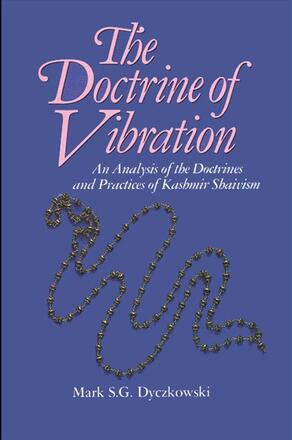
The Doctrine of Vibration
An Analysis of the Doctrines and Practices Associated with Kashmir Shaivism
Alternative formats available from:
Cutting across distinctions of schools and types, the author explains the central feature of Kashmir Shaivism: the creative pulse of the all pervasive Consciousness called SAiva. This is also the central theme of the Hindu Tantras, and Dyczkowski provides new insight into the most literate and extensive interpretations of the Tantras.
Description
This book is significant from four points of view. First, it breaks new ground in Indian philosophy. According to the Spanda Doctrine, the self is not simply witnessing consciousness as maintained by Sankya and Vedanta, but is an active force. Second, the ultimate reality is not simply a logical system of abstract categories, but is living, pulsating energy, the source of all manifestation. Third, the work elaborates the dynamic aspect of consciousness. It supplies an excellent introduction to the texts and scriptures of Kashmir Shaivism. Fourth, it suggests a Yoga for the realization of self.
Mark S. G. Dyczkowski took his first degree at Banaras Hindu University and then took his doctorate at Oxford University. He is presently associated with Sampurnananda Sanskrit University in Varanasi.
Reviews
"This is a serious, scholarly and personally committed approach to a highly significant topic. It makes accessible materials which are not widely known and not readily available. " -- Wilhelm Halbfass, University of Pennsylvania
"There is no other complete study of the Spanda, which is central to the SAaiva thought as it was developed in Kashmir. The treatment of the subject is sound, scholarly, exhaustive and penetrating. " -- Andre Padoux, Centre National de la Recherche Scientifique, Paris
"This delves into a relatively unexplored area of Kashmir Shaivism, i. e., Spanda, and offers a comprehensive first-hand treatment. The author brings forth new information and fresh insights. " -- Navjivan Rastogi Abhinavagupta Institute of Aesthetics and SAaiva Philosophy University of Lucknow, India